WEESH, Afghanistan - Afghan Border Police partnered with Combined Task Force Lightning Soldiers to collect biometrics scans using the Handheld Interagency Identity Detection Equipment device at the border crossing point customs facility Feb. 4.
Soldiers assigned to Blackjack Troop, 1st Squadron, 38th Cavalry Regiment, 525th Battlefield Surveillance Brigade based in Fort Bragg, N.C., used the HIIDE device to establish and verify peoples' identities coming into Afghanistan from Pakistan using biometrics, the science of using a person's physiological features such as iris, fingerprinting and facial recognition.
"The use of biometrics helps in identifying a person who may be a potential threat said Sgt. Payton Westerfield. "If someone is determined to be a 'high risk' person, they can be detained."
The process begins at the border crossing point. The road is congested with people coming into and out of Afghanistan. ABP officers randomly select people, search them and are process them at the customs facility.
The handheld device can store up to 22,000 profiles and. Westerfield said scans are conducted every day in Weesh.
The Ridgeland, S.C., native said if fingerprints are left on any bomb making material, it can be traced to a person, give a general idea of where he comes from and where he is travelling in Afghanistan.
After being searched by ABP officers, men walk into the immigration center office and sit with a Soldier. The Soldiers are very respectful as they processed someone. They greeted the gentlemen with "Asalaam-Alaikum," the pre-eminent greeting among Muslims. Once processed, the Soldiers thanked the men.
"Once the ABP hand them to us, we process them and then have them go about their way, said Sgt. David Masaitis. "Today we processed 100 people."
The cavalry scout said using the HIIDE device "We will know if a person is a suspect within seconds."
"Everyone in this community has a pretty strong level of respect for the ABP," said the Ocracoke Island, N.C. native. "So once they are searched by the ABP, they know that their next step is just to get processed and move out."
Sgt. Ariel White, added that their mission is to try to help the community by regularly going on foot patrols, help with the local school that is being built and assist the ABP personnel.
The cavalry scout said whenever his Troop is on a foot patrol, "People greet us and invite us to have chai [tea] with them, this area [Weesh] is definitely improving."
"The ABP know their job pretty well, they don't ask us what to do," said the Phoenix native. "Whenever there is an incident they take full control of the situation."
The road leading to Pakistan is regularly congested with vehicles, horses pulling carts full of goods, families traveling on foot, and trucks carrying considerable amounts of cargo to and from Pakistan.
After being processed, one older gentleman thanked the Soldiers. He shook hands with Soldiers and ABP officers as he left the immigration office.
"A lot of the older men are thankful [for the U.S. presence] because they were around when the Soviets where here, so they know how conditions were back then, they've seen worse," said Masaitis. "The younger generation might not see it the same way."
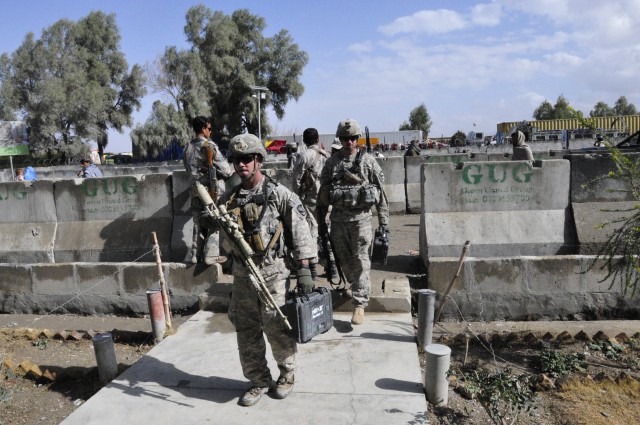
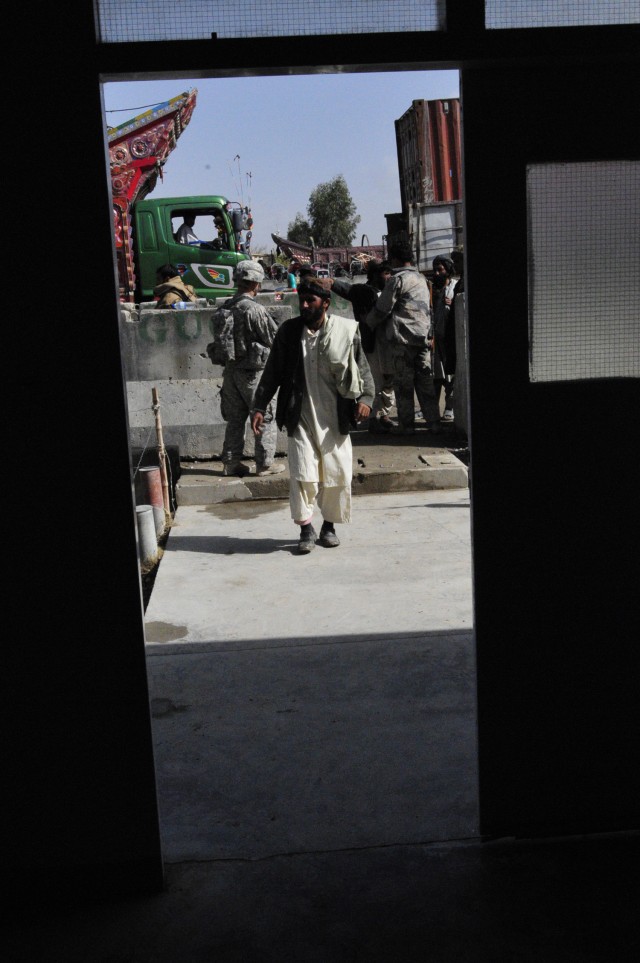
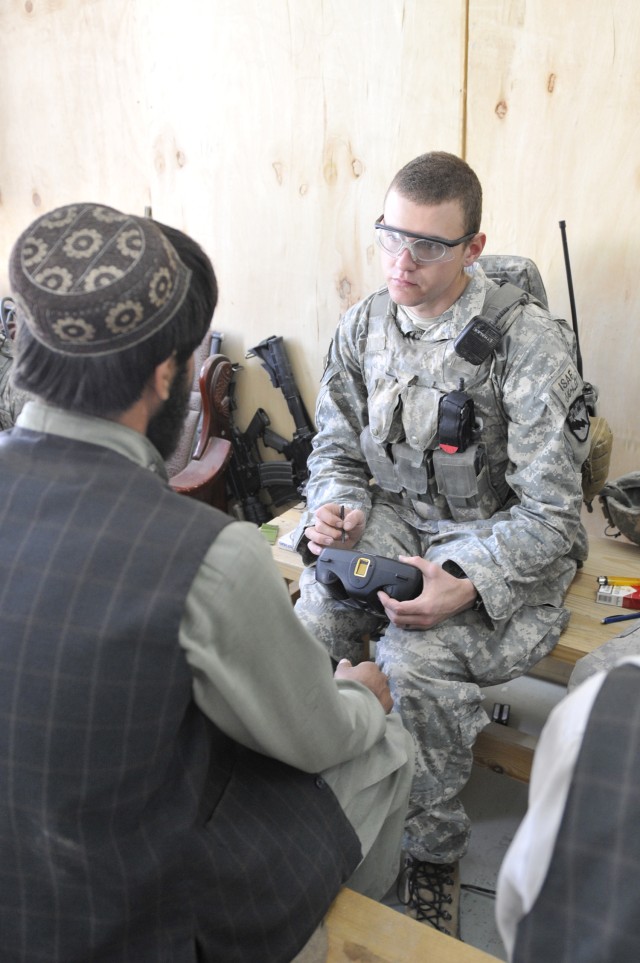
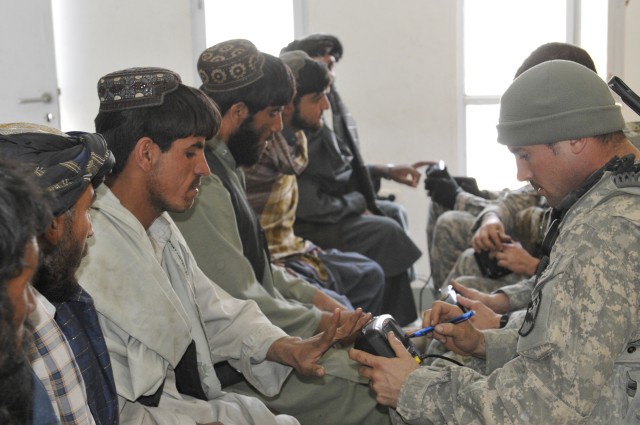
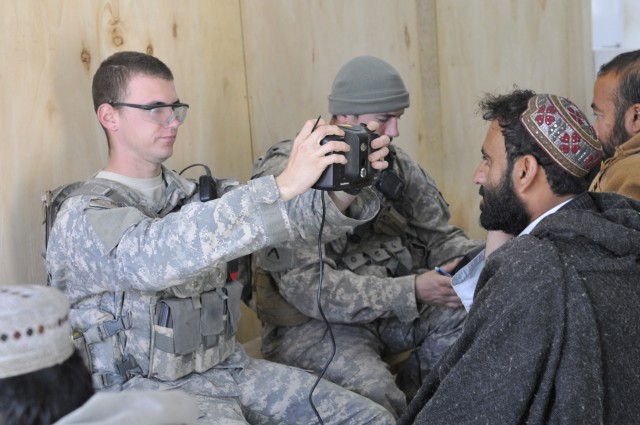
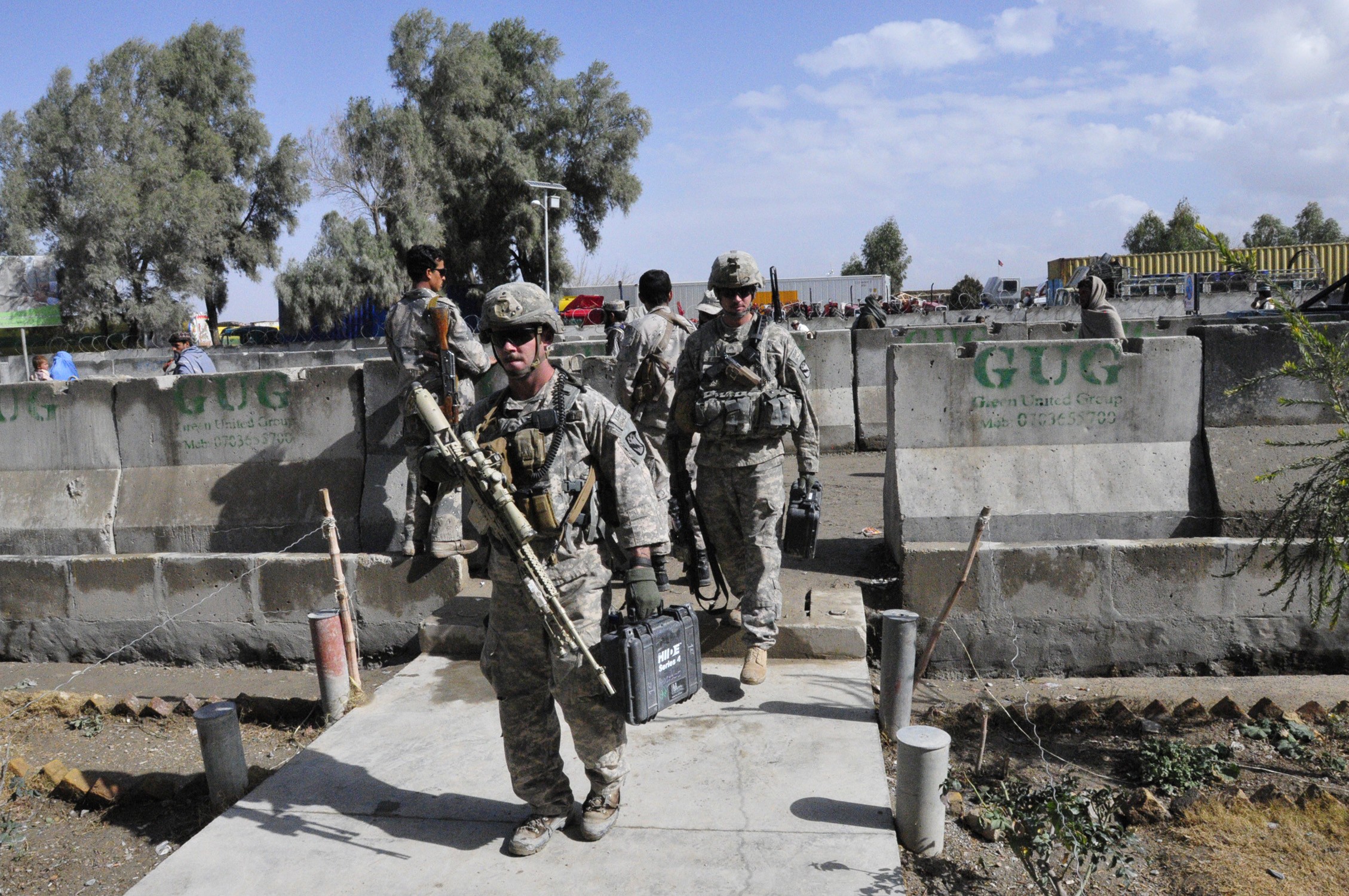




Social Sharing